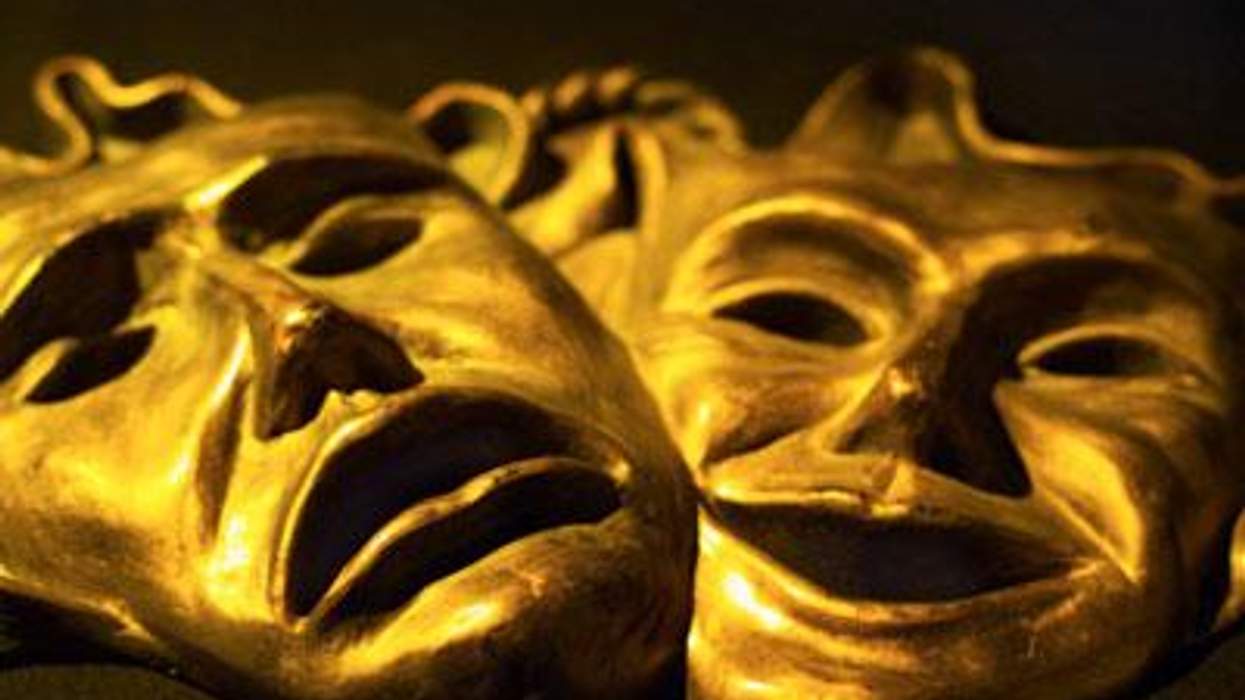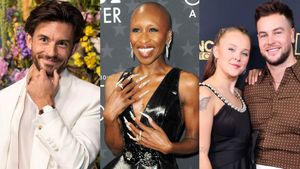If you're an LGBT actor heading into an audition, you'd better hope that the people making the casting decisions were born after the American bicentennial.
Jason Stuart, a working actor and comedian based in Los Angeles, told me that he has noticed filmmakers and TV producers under 35 just don't care about the sexual orientation of the actor coming into an audition. So as younger filmmakers and television producers get to make more decisions, he finds that they just don't care if actors are LGBT. It may be the reason he's been picking up steam in television (The Secret Life of the American Teenager, Entourage) as well as indies (Bear City 2, K-11), and Web series -- in fact, he spoke to me as he was taking a break shooting a new series, Mentor.
Stuart is also the cochair of the Screen Actors Guild National LGBT Actors Committee, which, with the help of the University of California, Los Angeles's Williams Institute, released the results of the first comprehensive study on LGBT members of SAG-AFTRA last week. The union represents actors ranging from day players to Hollywood's A-list. SAG-AFTRA's study examines what inequalities LGBT actors face with a range of issues pertaining to their jobs: casting, workplace discrimination, being out as an actor, and getting an agent or manager.
According to the study, more than half of the 5,700 LGBT responders said they believe directors and producers are biased against LGBT performers (about a third of straight, nontransgender actors have witnessed anti-LGBT discrimination). To add insult to injury, more than half of gay and bisexual performers have heard directors and producers make antigay comments about actors.
But while many actors -- LGBT and non-LGBT -- say conditions are slowly getting better for actors to be out and avoid discrimination, it's still an issue. One that perhaps prevents the next superstar-level celebrity like a Jennifer Lawrence or Channing Tatum from rising through the ranks as an actor who happens to be gay. There are some actors in the comedy field, like Neil Patrick Harris and Jane Lynch, who blow it out of the water, but why can't the next rom-com queen have a wife in real life? Why can't the next major action hero be a gay guy?
It seems that LGBT actors tend to be typecast more into LGBT roles, either because of the way they just are, or because of a string of work that leads them to play mostly gay characters or roles with very little depth. But with so few roles out there for LGBT characters in the first place, that limits the scope of work opportunities.
"Being gay is [pertinent to] such a small amount of roles, and straight actors are allowed to compete for them," Stuart said. "If you're not right for certain gay roles but they're not going to let you play anything else, it makes your available window of employment small."
Most actors say they have no problem playing gay roles, whether they're straight or LGBT. The problem is the decision-makers around them who seem to be weirded out by LGBT actors and roles and the industry's unwillingness to hand out a range of roles to LGBT actors is problematic.
In the study, a straight performer said playing gay early on affected his career, but he worked hard "to change that perception, and I have overcome it." Another study respondent said, "When you are out and play gay roles, the casting community and producers have a hard time seeing you in straight roles." And one gay actor said playing a gay character was essentially "career kryptonite."
Most LGBT actors who participated in the survey say they are out in their professional lives; most are out to agents, colleagues, directors, and producers. But there are still those dozen or so household names who are rumored to be gay, but not out. As the study's authors from the Williams Institute say, "Being out as an LGBT performer is a complicated concept and not necessarily completely under the control of LGBT performers, since many reported that other people can tell they are LGBT, especially for those who are gender nonconforming." Stuart agrees.
"I think some people, like me, are on the forefront of change, and some people are not," he said. "That's a personal choice. I'm not going to judge anyone for not coming out, but ... I feel it's important to create an environment where people can just exist."
Personally, I view LGBT actors kind of like professional athletes. Most everyday people have no clue what it's actually like to be an actor or a pro athlete, though we all love to play Monday morning quarterback. Outside of my job here at The Advocate, I write for a weekly sketch comedy show in Hollywood, I studied producing at UCLA, and I write screenplays like all the other nobodies at Starbucks. I have many friends who are actors, and I still have only a satisfactory understanding of what they have to deal with: the scrutiny, the rejection, the weird dieting.
Yet we're all so starved to see an openly gay actor rise to unprecedented levels of stardom and fame. Perhaps because we want to see ourselves in them. We want to know that we would be accepted into the homes of millions of people across the country and around the world, based on our talents and not our sexual orientations. So it's easy for us to flippantly say things like, "Gyah! Why doesn't ______ just freaking come out, already? No one would care!" But you have to wonder if the old guard of directors, producers, casting agents, and executives would indeed care. Those are the people who are very in control of those actors' careers.
And they only seem to care because, in the end, it's an industry.
Just like the main goal of pro sports teams is to win in order to entice more fans to come to the stadium and spend money, the goal for the film and television industry is to get people to watch. People have to really want to see a movie to pay $25 for two tickets, $20 for concessions, and $50 for a babysitter. In a world with audiences fragmented among a million TV channels, DVRs, and cell phones, viewers have to consciously remember to tune in to a show, let alone feel motivated to watch it. The network doesn't make money on how many Emmys a show gets (though it may help). TV networks make money based on the number of people being exposed to the commercials (which more people are fast-forwarding through, anyway). As a writer, I think it's perhaps a limiting model, but that's how networks make money. As an LGBT person, I think it's terrible that discrimination is tolerated over fears of losing money.
So, like Stuart, I'm also pushing for more of my millennial peers to make the casting decisions and give greenlights to projects. Hopefully, they're looking for a coming-of-age comedy set on Long Island; I have a good idea of who could play the dad.
MICHELLE GARCIA is The Advocate's commentary editor and a nobody screenwriter. Follow her @MzMichGarcia.




































































Charlie Kirk DID say stoning gay people was the 'perfect law' — and these other heinous quotes